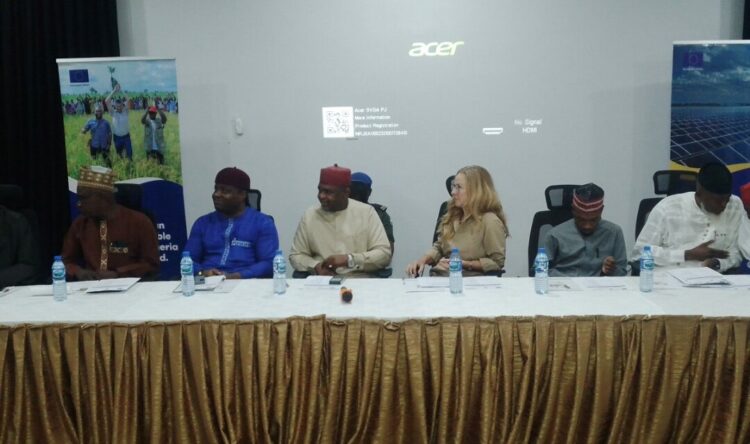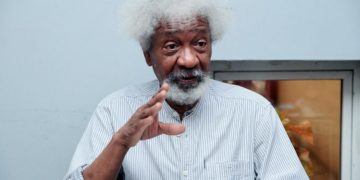The European Union (EU), in partnership with the German Federal Ministry for Economic Cooperation and Development (BMZ), has launched two Energy Efficiency Networks (EEN) in Kano State.
These initiatives, which seek to support Kano State, Northern Nigeria’s commercial and industrial hub, in addressing the energy challenges impacting the state’s economic growth and social development, will promote inclusive growth and strengthen energy transition efforts of the Nigerian Government.
Speaking during the official launch of the networks, Team Leader, Green and Digital Economy, EU Delegation to Nigeria and ECOWAS, Inga Stefanowicz, noted that while Kano State is a significant hub of economic activity and manufacturing, it experiences energy deficits, which are substantial impediments to performance and productivity of businesses and manufacturers in the state.
She stated that the EU is partnering with the state to address this challenge. “The EU in Nigeria has been engaging and partnering with Nigeria for many years to address energy and electrification deficit, especially given the country’s socioeconomic development,” she said.
Stefanowicz highlighted the importance of improving energy efficiency, “We focus on renewable energy primarily here in the state, and we have had some achievements in terms of solar power and additional capacities. Now, we are looking at the hydro sector in Kano State.
“There is great work to be done in energy efficiency to reduce the cost for manufacturers and businesses, reduce greenhouse gas emissions, and improve the environment. Saving and improving energy efficiency is as important as working to install new energy capacities. The Nigeria Energy Support Programme (NESP) has been doing this for years.”
In his welcome address, the Commissioner of Investment, Commerce, Industry and Cooperative, Kano State, Shehu Wada Sagagi, said, “This initiative cannot come at a better time. Energy efficiency has always been a problem for Small and Medium Enterprises (SMEs). Most of them complain that they are being charged for energy they don’t use. Therefore, I thank the EU and the German Cooperation for this initiative.
“We have a problem with qualified electricians. The few we have charge too much, and there is a high demand for them. I hope this energy support initiative will also include electrician training, so we have enough electricians.
“In Kano, we need improved access to electricity. We currently need about 1,000MW of electricity, which we can provide far below. Most companies, therefore, opt for generating their power.”
Assuring the EU of the state’s willingness to collaborate, Sagagi said, “We are going to work with the EU and provide all assistance and collaborations needed. We want everyone to come and contribute to our economic growth. Solving the electricity problem will solve the problem of unemployment. Most of our youth are not only unemployed but unemployable. This initiative is therefore timely to help them acquire skills.”
In his remarks, Markus Wagner, the GIZ’s Country Director for Nigeria and ECOWAS, represented by Joshua Yari, Implementation Manager, GIZ, said: “Germany has long recognised the importance of energy efficiency in enhancing the economic competitiveness of industries in the global market. These efforts align perfectly with Nigeria’s Energy Transition Plan, which, among other things, aims at doubling the rate of improvement in energy efficiency by 2030 and net zero emissions by 2060.”
The Director General, Nigerian Association of Chambers of Commerce, Industry, Mines and Agriculture (NACCIMA), Olusola Obadimu, added, “The launch of the Energy Efficiency Network is both timely and strategic. As the voice of Nigerian business, NACCIMA recognises that energy efficiency is not merely a technical consideration, but a developmental imperative, a cornerstone for enhancing industrial productivity, reducing energy costs, combating climate change, and promoting green economic growth.
“Our industries, particularly Micro, Small and Medium Enterprises (MSMEs), remain heavily burdened by energy-related constraints, from rising utility costs to unstable power supply. These inefficiencies stifle output, limit competitiveness, and hinder innovation. Establishing a structured Energy Efficiency Network provides a real opportunity to reverse this trend by enabling industries to share best practices, access technical know-how, benchmark performance, and co-create context-specific solutions for energy management.”
During his keynote address, Segun Ajayi-Kadir, Director General of the Manufacturers Association of Nigeria (MAN), represented by Oluwasegun Ogundipe, Director of the Research and Economic Policy Division, described the launch as a bold initiative and laudable step towards promoting a more sustainable, resilient, and energy-smart future for our dear country.
“Most ratifying is the introduction of the Nigeria Energy Support Programme that has, over the years, added immense value to manufacturing concerns in Nigeria, regarding skills upscale and cost savings through energy efficiency initiatives. Energy is critical to the competitiveness of the manufacturing sector and the attainment of sustained economic growth.”











